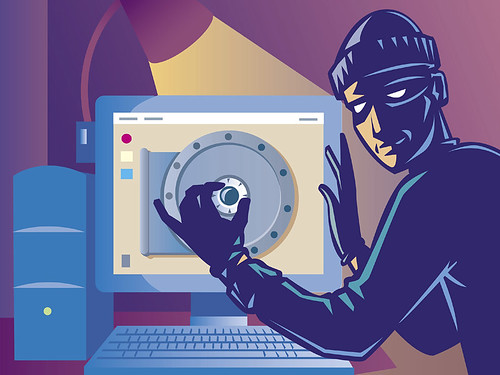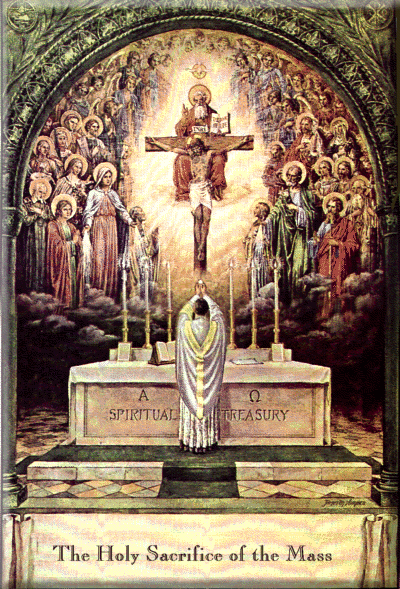 |
| Photo by Elhombredenegro |
I recently found a blog post named What's mine is God's and What's yours is God's
The Seventh Commandment
The reality is that the seventh commandment is more than what we know it to be. It is also related to stewardship; taking care of what God has given us.
To further emphasize this and explain it, we should look at what the Catechism has to say about stealing.
The seventh commandment forbids theft, that is, usurping another's property against the reasonable will of the owner.Even
if it does not contradict the provisions of civil law, any form of
unjustly taking and keeping the property of others is against the
seventh commandment: thus, deliberate retention of goods lent or of
objects lost; business fraud; paying unjust wages; forcing up prices by
taking advantage of the ignorance or hardship of another.The
following are also morally illicit: speculation in which one contrives
to manipulate the price of goods artificially in order to gain an
advantage to the detriment of others; corruption in which one influences
the judgment of those who must make decisions according to law;
appropriation and use for private purposes of the common goods of an
enterprise; work poorly done; tax evasion; forgery of checks and
invoices; excessive expenses and waste. Willfully damaging private or
public property is contrary to the moral law and requires reparation. (Catechism 2408-2409)
This passage is a great description of what it means to steal. Stealing is not only in terms of items that have been gained illicitly, but it constitutes a whole lot more. Anyone who has done poorly done work, out of not wanting to do their best, damaging private property willfully, and lavish spending can all be considered stealing.
This is why stealing and stewardship go hand in hand. We know that nothing belongs to us, on the contrary everything belongs to God. We are simply stewards of what God has given us. It is our duty of taking care of what God has given us. Not doing so would in one sense be considered stealing.
Take these two examples
You have started a small painting business and get quite some clients. Yet you have been taking advantage of your customers by charging quite a lot and doing a very poor job. You leave most of the work undone, or intentionally not put in your best effort in your job.
The second scenario is that you are given money by your parents to help you out. Let's say you just moved out and your parents give you a good sum of money. Yet you spend it lavishly and loosely. This is kind of like the story of the Prodigal son.
In both these scenarios you are in essence stealing. It is not that you physically took something from someone without asking permission, but that you did not take care of what you were given. In the first scenario you robbed the client of his money, by charging a lot for something while choosing not to put quality in your work. By doing so you have stolen money from someone. In the second scenario although that money was given to you, you did not take care of it by spending in lavishly.
Respecting copyright law
Something that many of us have been guilty of including me. It is something common in our generation that should be addressed, as it is stealing.
Just as there are tangible goods, such as property, cars, land, etc, there are also intangible goods. These are those such as patents, copyrighted works, music, ideas, songs, and much more.
We live in a time where many of us recreationally download and share these intangible assets; most of the time songs and movies. We have gotten use to doing this that we may have forgotten the fact that many times we are breaking copyright law without even knowing it.
The problem is that many times it is hard to know what is copyrighted and what is not. This is true when it comes to using things like images and songs out of another website. Many times these things are free to use, but not always. For this reason it is our job to find out before using something. I have been guilty of breaking copyright laws before simply because of ignorance and lack of understanding. Now I am a lot more careful when it comes to this.
As Catholics we should have respect for the law at hand. Even when it comes to paying taxes and yes this even means copyright laws. This is just as Jesus said " Render unto Caesar what belongs to Caesar" Mark 12:17
Stewardship and the seventh Commandment
Stewardship
The word steward is defined as someone who manages the property, finances, and other domestic affairs of another. I thus think that the parable of the talents is a great example of what stewardship means.
“It will be as when a man who was going on a journey called in his servants and entrusted his possessions to them. To one he gave five talents; to another, two; to a third, one—to each according to his ability. Then he went away. Immediately the one who received five talents went and traded with them, and made another five. Likewise, the one who received two made another two. But the man who received one went off and dug a hole in the ground and buried his master’s money.After a long time the master of those servants came back and settled accounts with them. The one who had received five talents came forward bringing the additional five. He said, ‘Master, you gave me five talents. See, I have made five more.’ His master said to him, ‘Well done, my good and faithful servant. Since you were faithful in small matters, I will give you great responsibilities. Come, share your master’s joy.’Then the one who had received two talents also came forward and said, ‘Master, you gave me two talents. See, I have made two more.’His master said to him, ‘Well done, my good and faithful servant. Since you were faithful in small matters, I will give you great responsibilities. Come, share your master’s joy.’ Then the one who had received the one talent came forward and said, ‘Master, I knew you were a demanding person, harvesting where you did not plant and gathering where you did not scatter; so out of fear I went off and buried your talent in the ground. Here it is back.’His master said to him in reply, ‘You wicked, lazy servant! So you knew that I harvest where I did not plant and gather where I did not scatter? Should you not then have put my money in the bank so that I could have got it back with interest on my return? Now then! Take the talent from him and give it to the one with ten. For to everyone who has, more will be given and he will grow rich; but from the one who has not, even what he has will be taken away. And throw this useless servant into the darkness outside, where there will be wailing and grinding of teeth.’
Mathew 25:14-30
In the parable of the talents we learn about the last servant who chooses to put his talents in a hole, thus not doing anything with them. Later his master takes them away and gives them to the other servant. The passage ends by stating that " he who has not, even what he has will be taken away".
The Catholic church extends our role of stewardship and gives us a bigger role, than just financial matters or dealing with property. The church commands us to be good stewards with all of our actions that they may be of benefit to all. The Catechism of the Catholic church summarizes our role of stewardship.
In the beginning God entrusted the earth and its resources to the common stewardship of mankind to take care of them, master them by labor, and enjoy their fruits. The right to private property, acquired or received in a just way, does not do away with the original gift of the earth to the whole of mankind. In his use of things man should regard the external goods he legitimately owns not merely as exclusive to himself but common to others also, in the sense that they can benefit others as well as himself.” The ownership of any property makes its holder a steward of Providence, with the task of making it fruitful and communicating its benefits to others, first of all his family.
(Catechism of the Catholic church 2402-2404)
Love of thy neighbor
Thus by it being of benefit to all, it is saying that we are to do what benefits our neighbor. This includes respect and love for each other. Stealing, taking advantage of, and doing actions that only benefit ourselves is not being a good steward. Rather we are to do the opposite, as we are accountable for our actions.
It is that we must act on the best interest of others. We do this by not stealing as that is contrary to the moral law. Doing so hurts thy neighbor which is against Jesus telling us to love thy neighbor. We are also to be good stewards, in that we act by taking care of what has been given to us. By knowing that everything belongs to God, we would want to keep everything in good condition. We wouldn't let something borrowed to us be damaged would we?
A priest is to take care of his congregation, just as a shepherd is to take care of his flock. As children of God we are to take care of each other.









